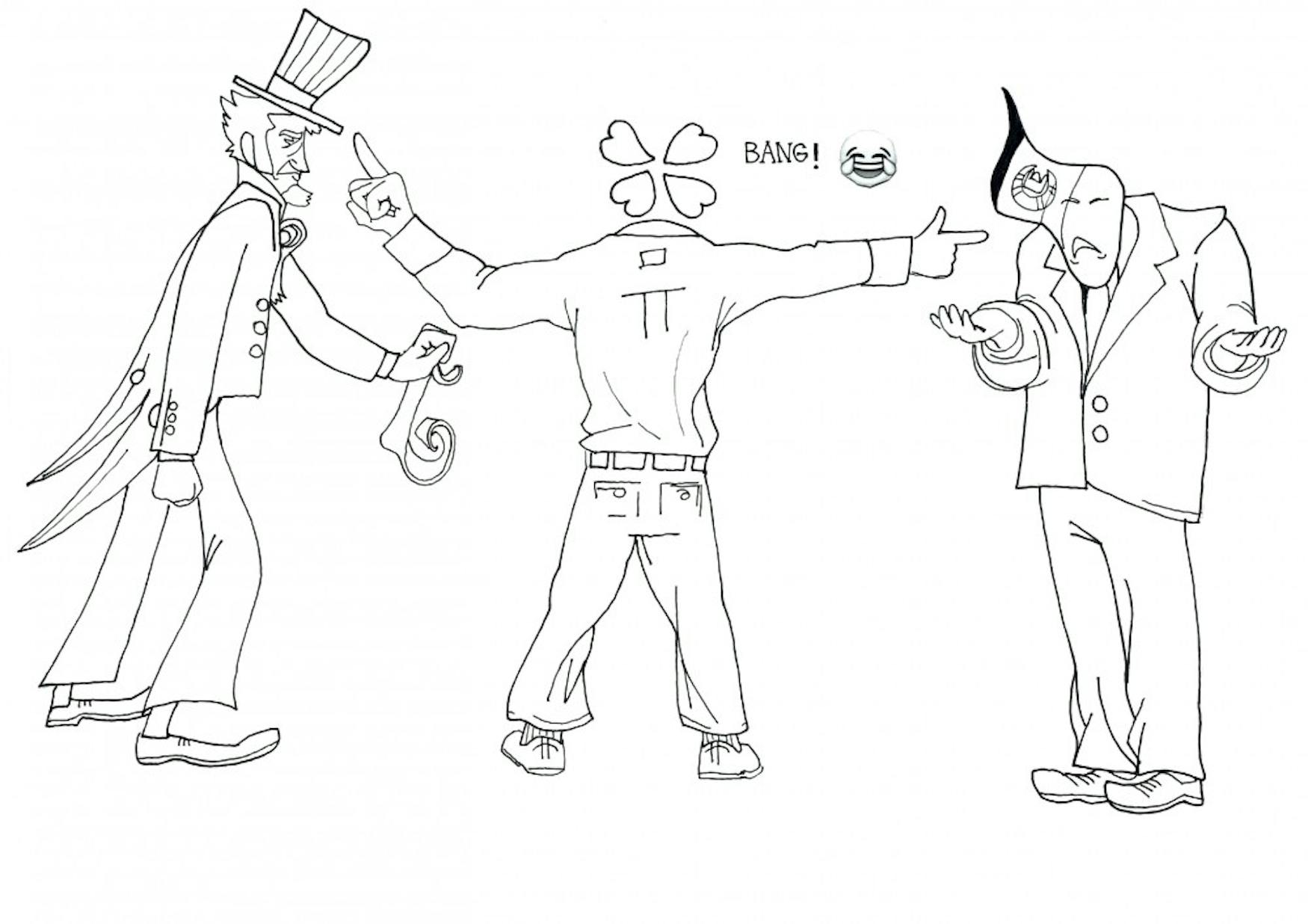United States of Kekistan: The Alt-Right's Military Presence
A United States private military contractor stationed in Afghanistan was recently discharged for wearing white supremacist memorabilia on the battlefield, according to a Sept. 25 Huffington Post article. His version of white supremacy was a new brand, at least to me. Abdicating the organization’s hoods, tiki torches and chants of “blood and soil,” he instead brandished a green-colored ‘Kekistan’ flag for Pepe the Frog. A quick overview: Kekistan is a fictional country born in 4chan chat rooms and its flag is a symbol of unity for misogynists, white supremacists and many alt-right thinkers. Though this contractor did not act in a vacuum, his actions were an expression of a subversive culture within the U.S. which speaks to an underlying untruth in our characterization of the troops.
First, there is a misconception that enlisted American soldiers are doing all of the fighting in post World War II conflicts. Rather, some are private military contractors who are mercenaries that are hired by the U.S. government through tens of billions of dollars of defense spending directed specifically toward contractor services. They constituted 15 percent of all contractors during the wars in Iraq and Afghanistan, according to an Aug. 16 Atlantic article. This practice comes with a bevy of consequences.
At face value, hiring mercenaries provides a tactical disadvantage for the United States. It convolutes the chain of command, as U.S. Armed Forces officials have to work through another layer of bureaucracy within these private security firms. These private contractors also do not count as soldiers to Congress, so in some cases, there could be twice as many boots on the ground as the number actually reported to the American people. These additional people can overcrowd operations and incur astronomical costs. Also, the U.S.’s policy of hiring contractors creates an underground market for subcontractors. These are individuals that contractors hire when they arrive, and they have been linked to kidnapping, bribery and other abhorrent acts.
As this case demonstrates, the U.S.’s reliance on private military contractors provides an impetus for groups to hate America. Private military contractors are excellent scapegoats, especially for countries like the U.S. that can hide behind them. We pay people to commit atrocities while keeping our hands clean; meanwhile, hatred for America abroad only grows. America manufactures a lot of this hate with an obsession with interventionism toward countries that have yet to acquire nuclear weapons. However, in expanding beyond the actions of this one man, one delves into the culture that promotes the misconception of soldiers being champions of patriotism traveling the world to promote our safety.
It all begins with the question of what it means to be an American. World War II was a paradigm shift;there have scarcely been any wars involving Western nations and other sovereign nations since 1945. In the wake of the creation of nuclear weapons, countries began to wage war with ideas instead of people. It is infinitely easier to misrepresent an idea or only direct attention to extremism and dogma rather than to acknowledge the complexity of human beings themselves. Americans are supposed to believe that they epitomize freedom and justice and that this is a burdens.
There is a latent value in this notion of America being able to uniquely offer freedom and justice. The words “all men are created equal” have been held over our heads, for better or worse, for generations, regardless of how well we have adhered to them. The most important part of this creed is that it is non-comparative. American patriotism is not saying that America is the best country on Earth, but rather that it has the potential to be, and that one has faith that we can work toward that goal.
Furthermore, what makes being American different from being Croatian or Senegalese is that the identity of an American is not bound to a territory or an ethnicity. Our notion of pride in one’s country is based on an internal calculus. Part of this is America’s modern heterogeneity, but it is more important to acknowledge the principles on which America was founded. That being said, we ought to examine the conception of our armed forces as the ideological extensions of ourselves. Soldiers are not the epitome of morality for ours or any society; that is an idea born of propaganda. They do not uphold my morals, and they do not fight for my causes. It is important to respect them for putting their lives on the line to fight for what they believe in, but this mischaracterization of them as heroes is damaging. When we shroud anyone in a veil of untouchability, it makes it impossible to interact with them. When all is said and done, they are ordinary people, and as their compatriots, all Americans ought afford them the same critiques.
It is illegal for a soldier to express their political opinions in uniform, and though this contractor was apparently acting alone, he was just one of the few bold enough to actually do it. The fault lies with the society that taught him that those were the values that he was fighting for. We live in an America where members of white supremacist factions join the military to get training for free. There are white nationalist militia groups like the Attomwaffen SS, another neo-Nazi group that started in a chatroom and is now responsible for five assassinations, that have members in several branches of the U.S. military. I am glad that the U.S. government took a stance here in solidarity with people who stand against bigots. The Kekistan flag is not what America has, does or will ever stand for.



Please note All comments are eligible for publication in The Justice.